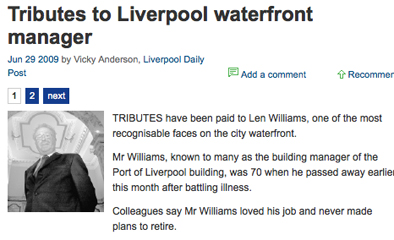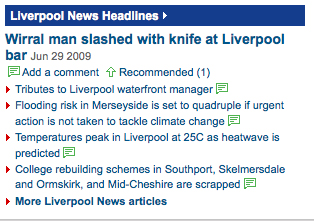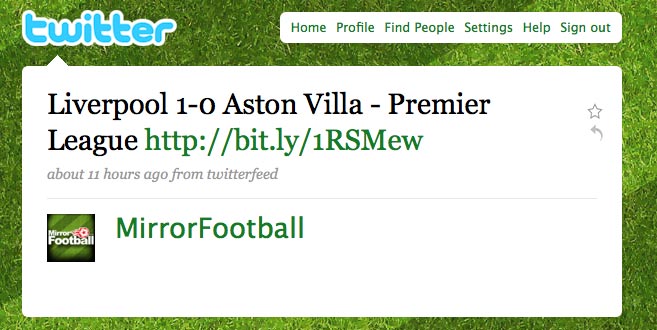It was an ‘oversight’ that Madeleine McCann related keywords were included in the metadata for every main local news story on the Liverpool Daily Post site, a Trinity Mirror spokeperson said, after Journalism.co.uk informed the company that the terms were present in the ‘hidden text’ of a series of unrelated news items.
The automatic inclusion of the keywords “madeleine mccann, madeleine mcgann, kate mcgann, kate mccann” in the HTML for Liverpool news stories has now ceased.
Journalism.co.uk learned in May that specific keywords, including those above, were used in the metadata for the ‘Liverpool News Headlines’ section on the Liverpool Daily Post site, regardless of the story’s relevance. This continued for at least one month before it was drawn to the Post’s attention on Monday (June 29).
Use of unrelated ‘hidden’ metadata is commonly known as ‘keyword stuffing’, a practice which Google firmly discourages. Using popular keywords can help improve a site’s SEO performance. [Update: Google and most other search engines are no longer believed (Wikipedia link here) to recognise these tags: see Lammo.net post at this link.]
Google search results for “Madeleine McCann + Liverpool” shows that the Post and its sister site, the Liverpool Echo, have top rankings for related Madeleine McCann stories. [Update: but lower rankings when a simple Madeleine McCann search is performed. It’s unlikely the addition of the keywords aided the LDP’s Google ranking. Google says: “While accurate meta descriptions can improve clickthrough, they won’t impact your ranking within search results.”]
A Trinity Mirror spokesman said: “The metadata was inserted some time ago when the Madeleine McCann story was at its height and was the most-searched item on our web sites. It was inserted to make it easier for our users to access a huge story of national and local interest. The fact that it wasn’t removed is an oversight, which has now been put right.”
The evidence (before Liverpool Daily Post corrected the error this week):
A story about Len Williams, a well-known waterfront manager who recently died.

Keywords in the HTML version:

The section of the site which used these keywords for all stories:

Google’s definition:
“‘Keyword stuffing’ refers to the practice of loading a webpage with keywords in an attempt to manipulate a site’s ranking in Google’s search results. Filling pages with keywords results in a negative user experience, and can harm your site’s ranking. Focus on creating useful, information-rich content that uses keywords appropriately and in context.
“To fix this problem, review your site for misused keywords. Typically, these will be lists or paragraphs of keywords, often randomly repeated. Check carefully, because keywords can often be in the form of hidden text, or they can be hidden in title tags or alt attributes.
“Once you’ve made your changes and are confident that your site no longer violates our guidelines, submit your site for reconsideration.”
A definition by Nathan Campbell on SEO.com:
“Some unethical SEOs choose to employ renegade tactics such as keyword stuffing. Keyword stuffing is overloading the content or meta tags of the web page with every possible keyword or phrase that relates to the site in many different forms.”


